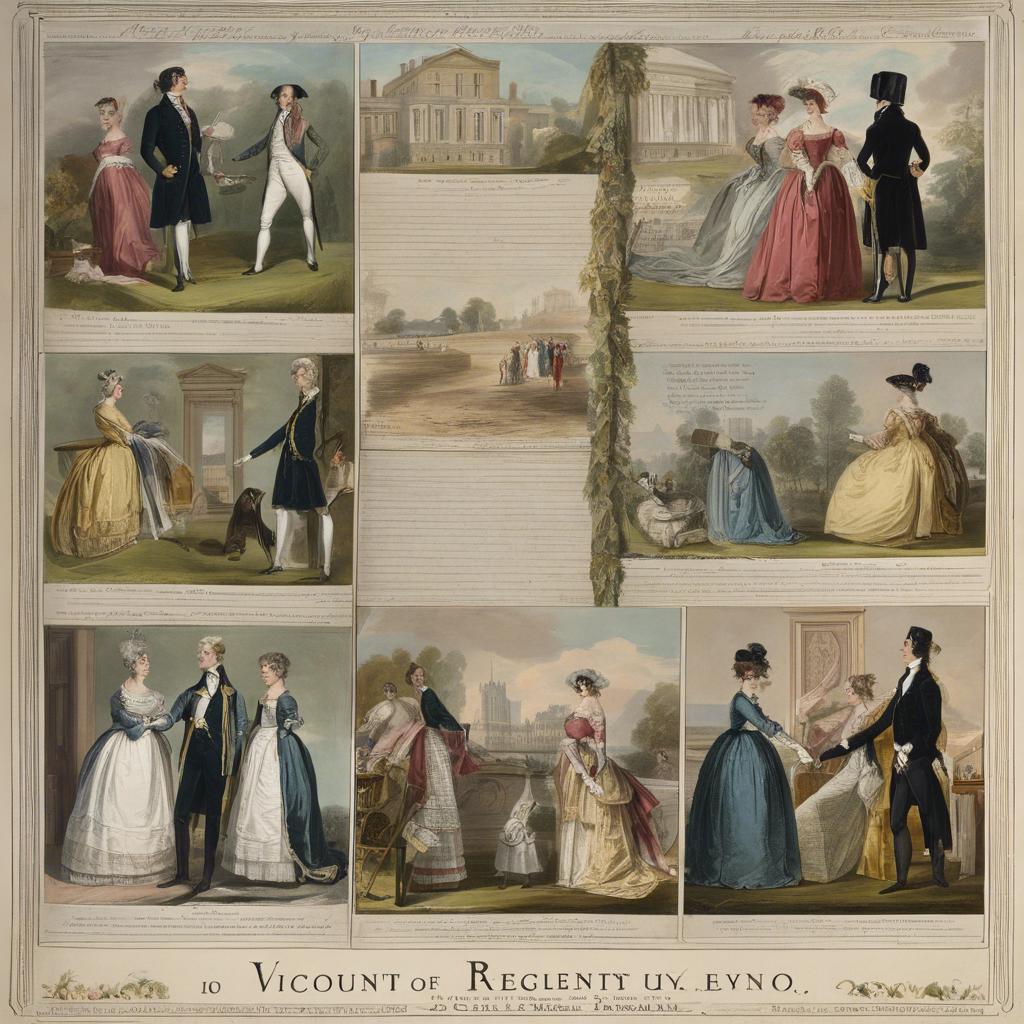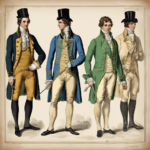In the illustrious world of British peerage, the title of viscount holds a position of distinct honor and prestige. During the Regency era, viscounts played pivotal roles in shaping the political landscape and social hierarchy of society. From their elegant estates to their enthralling courtly gatherings, the viscounts of the Regency era epitomized refinement, sophistication, and influence. In this article, we delve into the lives and legacies of these esteemed individuals, exploring the impact they had on the cultural, political, and economic realms of their time. Join us on a journey through the opulent world of Regency era viscounts as we uncover the secrets and scandals that defined their era.
Step Into the World of Cheryl Bolen
Dive into the enchanting stories of love, intrigue, and elegance set in the Regency Era. Cheryl Bolen's novels offer timeless romance and captivating tales that will leave you wanting more.
Explore Cheryl Bolen's Books Now
Life and Titles of a Regency Era Viscount
In the Regency era, a Viscount was a noble title given to a man of regency era ball”>high social standing and importance. Viscounts held significant power and influence within the aristocracy, often serving as advisors to the monarch and holding important positions in government and society. The title of Viscount was hereditary, passing from father to son, and carried with it certain privileges and responsibilities.
Life as a Regency era Viscount was one of luxury and privilege, with access to the finest education, wealth, and opportunities. Viscounts often lived in grand estates or manor houses, surrounded by a retinue of servants and staff to attend to their every need. They were expected to uphold the traditions and values of the aristocracy, and to act as pillars of society.
Titles and honors were an important part of a Viscount’s identity and standing in society. In addition to the title of Viscount, they may have held other titles such as Earl, Baron, or Duke, depending on their rank and lineage. These titles conferred specific rights and responsibilities, and were a mark of honor and prestige.
Political Power and Influence of Viscounts During the Regency Era
The regency era was a time of great political power and influence for viscounts in England. These noble titles held significant weight in society and played a crucial role in shaping the political landscape of the time.
Viscounts during the regency era often held positions of authority in government, serving as trusted advisors to the monarch and playing key roles in decision-making processes. Their influence extended beyond the walls of Parliament, with many viscounts using their status to secure advantageous marriages and alliances to further consolidate their power.
Despite their privileged position in society, viscounts faced challenges in maintaining their political power and influence during this turbulent period. Rival factions and shifting alliances meant that viscounts had to navigate carefully through the treacherous waters of politics to protect their interests and maintain their standing in society.
Social Responsibilities and Obligations of Regency Viscounts
During the Regency era, viscounts held a position of power and influence within society. Along with their titles came a set of social responsibilities and obligations that were expected to be upheld. These duties encompassed both the well-being of their communities and the maintenance of their reputation among their peers.
Viscounts were not only responsible for overseeing the welfare of their tenants and estates but also for actively participating in local governance. This included attending meetings, making important decisions for the benefit of the community, and acting as a liaison between their constituents and higher authorities.
Furthermore, viscounts were expected to uphold certain standards of behavior and morality. They were looked upon as role models within society, and any scandal or wrongdoing could tarnish not only their own reputation but also that of their family and title. It was essential for viscounts to conduct themselves with dignity, respect, and integrity at all times.
Fashion and Lifestyle of Viscounts in the Regency Era
In the elegant world of Regency-era viscounts, fashion and lifestyle were of utmost importance. Viscounts were prominent members of the aristocracy, holding a distinguished title that commanded respect and admiration. Their clothing and accessories reflected their high social standing and refined taste.
Viscounts in the Regency era were known for their impeccable sense of style. They favored tailored suits made of luxurious fabrics such as silk and velvet, adorned with intricate embroidery and embellishments. These suits were often paired with silk cravats and top hats, creating a look that exuded sophistication and elegance.
When it came to lifestyle, regency-era viscounts enjoyed a life of leisure and luxury. They often attended lavish balls and social gatherings, where they mingled with other members of the aristocracy. Viscounts were also patrons of the arts, supporting artists, musicians, and writers of the time. Their opulent homes were filled with fine art, exquisite furniture, and valuable antiques, showcasing their refined taste and appreciation for beauty.
The Way Forward
the regency era viscounts played a crucial role in shaping the political and social landscape of their time. With their inherited titles, vast estates, and prestigious connections, these noble individuals wielded immense power and influence. Their legacy lives on in the grand country houses and historic landmarks that still stand today, reminding us of a bygone era of elegance and privilege. As we reflect on the regency era viscounts of yesteryear, we are reminded of the enduring allure of aristocratic society and the mark they left on history.


